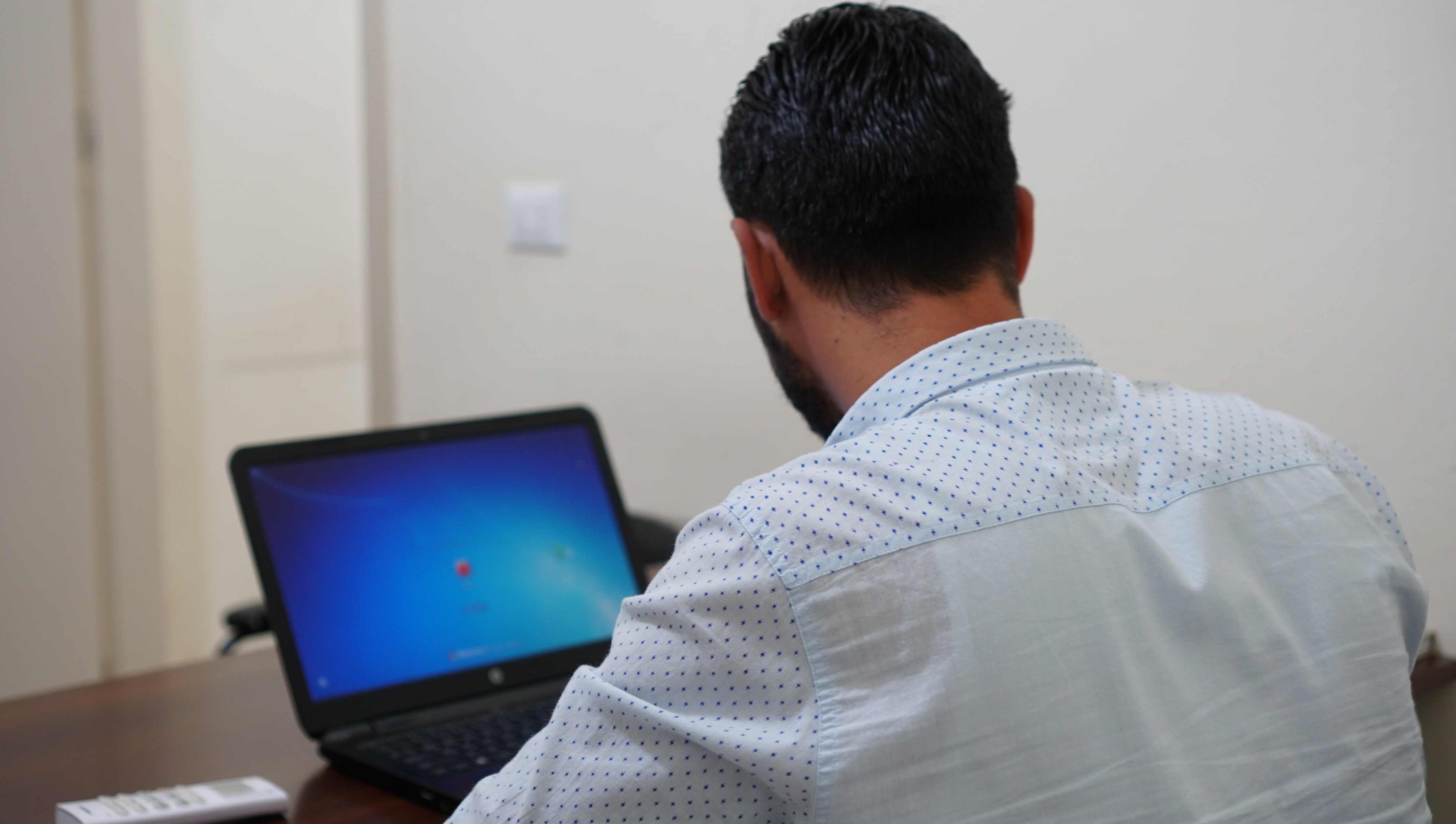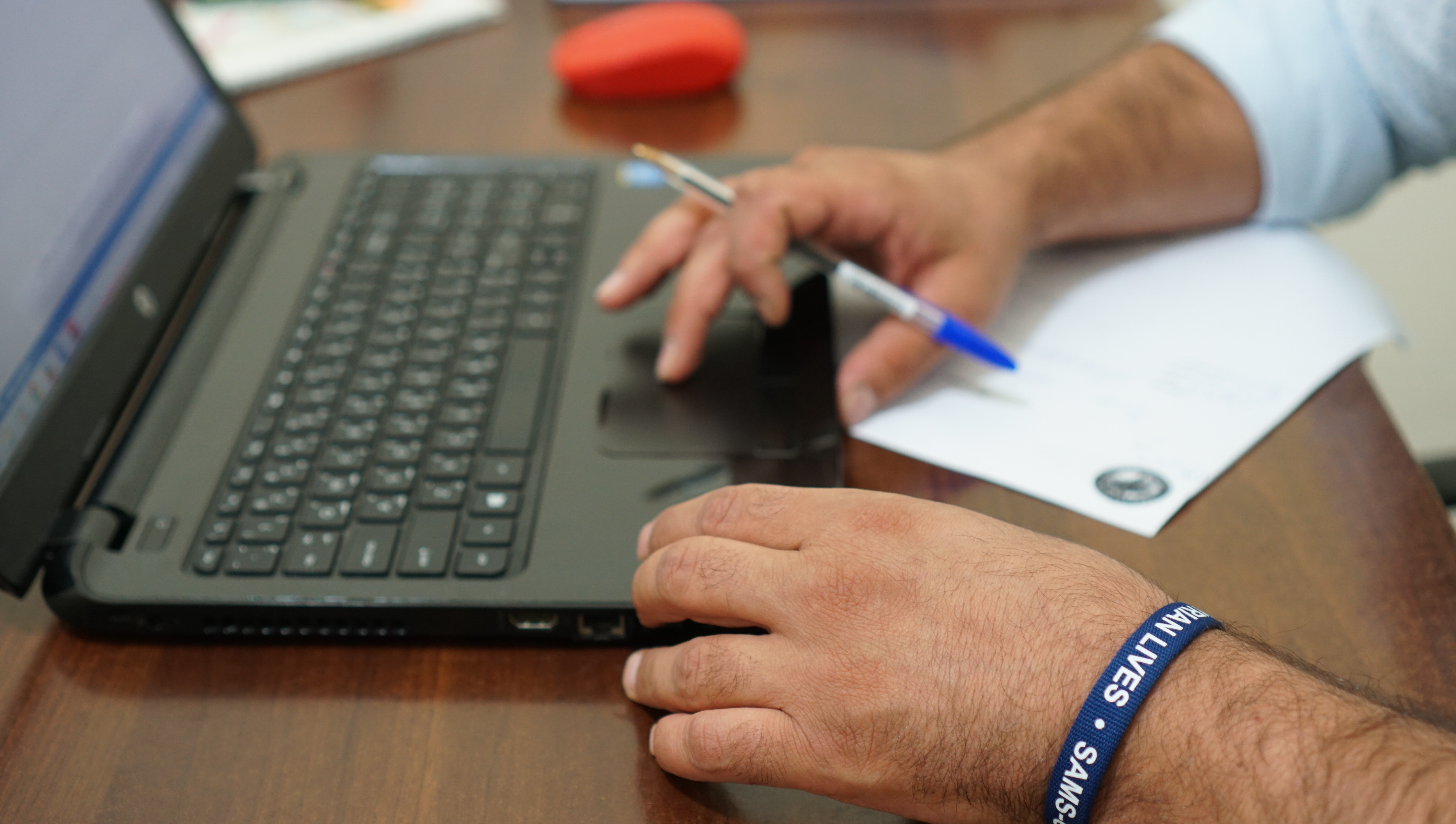November 13, 2017
Mohammed started working with SAMS as a psychologist in the Bekaa Valley three years ago. Originally from the countryside of Damascus, he studied psychology and started working immediately after graduation. Not long after, he was forced to flee from Syria to Lebanon when the war reached his hometown.
With the Syrian conflict well into its seventh year, Mohammad describes an acute need for psychosocial support.
“I don’t think I can describe and explain the need to provide psychosocial support to Syrians in Lebanon as the need is greater and more explicit than ever before. We are seeing extreme cases that couldn’t adapt or move on after fleeing from war.”
Throughout his work with SAMS, Mohammed has seen a great deal of anxiety and depression in many of his patients – but one case still stands out in his memory.
“I will never forget it,” he says.
A 4 year old boy came to the SAMS clinic with his mother, who was complaining that her son showed signs of extreme fear. He also never seemed to be full or satisfied, no matter how much he ate. Mohammed learned that the child was suffering from a “compulsive eating disorder.”
Soon, the reason for his compulsive eating became clear – he was from a besieged town inside Syria, where food was scarce for many months. The child had even developed malnutrition, accompanied by health problems. This experience fundamentally changed his attitude toward food.
Mohammed recognizes that there is a lot of work ahead: “I believe that we need years and years to overcome the consequences of war, and we need a big number of mental health specialists in order to mitigate the psychological impact of war.”
Nevertheless, he sees the hope in future generations of Syrians.
What really encouraged me to work with Syrian refugees in Lebanon is that I want to help build a generation that is well-balanced psychologically and socially.”





